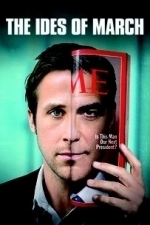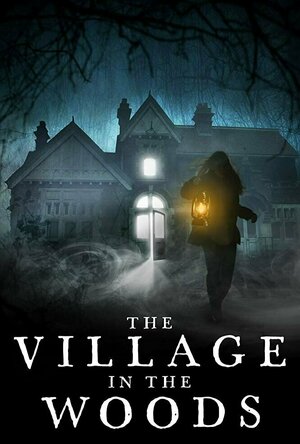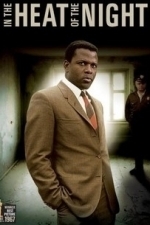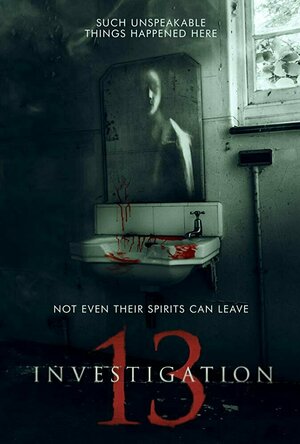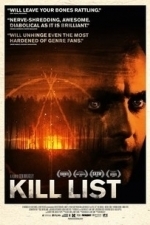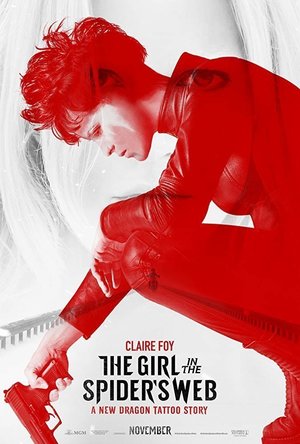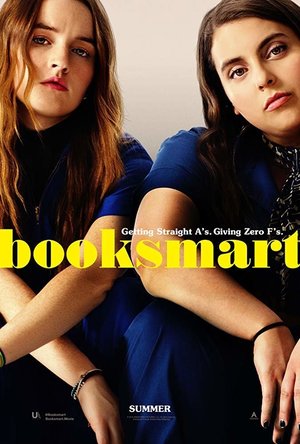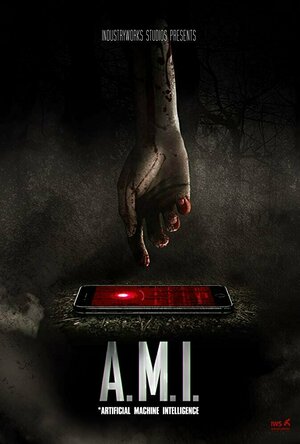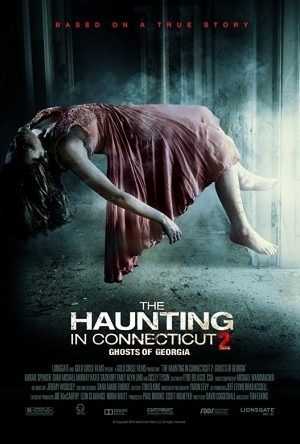Search
Search results
Darren (1599 KP) rated The Ides of March (2011) in Movies
Sep 13, 2019 (Updated Sep 13, 2019)
Characters – Stephen Meyers is the ambitious campaign manager who is wildly considered one of the best in the business with his ability to handle the media and remain calm through any situation. His life is turned upside when he becomes a pawn in the dirty tactics involved in an election race and he will need to roll his sleeves up to fight back. Governor Mike Morris is the man Stephen is working for, he is the underdog in the race and seems like the perfect candidate, only he has secrets which could ruin his campaign. Paul is Stephen’s boss, the man who took a chance on Stephen, he values loyalty over anything else and doesn’t always trust the people around him. Tom Duffy is the campaign manager on the opposite side, he does like the ideas Stephen is playing and wants him on his team, he is the first one to play him into his own game. Molly is the intern on the staff that could bring down the whole campaign with her secret. Ida is a journalist that will do anything for a story which will get her on the front page.
Performances – In the performances we have a list of all-star actors that show us just how an ensembled cast can make a movie so enjoyable. We have Ryan Gosling taking centre stage, George Clooney playing a role her is perfect for and Hoffman and Giamatti that are just acting masters with these roles showing just how talented they are.
Story – The story here follows a younger political man o the verge of his biggest campaign victory, when he gets shown the darker side of politics. Now this is an interesting story as we see how the innocent man must get dirty to survive the game and how the seasoned veterans of the game know every trick that will come their way. The mix of this keeps us on the edge of our seat through the film, the weakness in the film comes from the non-Americans struggle to keep up with who is one which Republican or Democratic side of the discussion and what level this is for the presidential candidate races. Unless you know the American political system you might fall short knowing everything going on here.
Thriller – This film does keep us on edge through the events of the campaign, this is what we want and the twists in the darker side of the political system become clear by the end.
Settings – The film throws us into every potential political arena you can think of, we get plenty of discussions some in secret others in an open forum to just what goes on behind the scenes of a campaign race.
Scene of the Movie – This will be my campaign.
That Moment That Annoyed Me – Not understand the American political system.
Final Thoughts – This is a good political thriller that will keep you guessing from start to finish, it has a brilliant cast that all shine too.
Overall: Keeps you guessing from start to finish.
Performances – In the performances we have a list of all-star actors that show us just how an ensembled cast can make a movie so enjoyable. We have Ryan Gosling taking centre stage, George Clooney playing a role her is perfect for and Hoffman and Giamatti that are just acting masters with these roles showing just how talented they are.
Story – The story here follows a younger political man o the verge of his biggest campaign victory, when he gets shown the darker side of politics. Now this is an interesting story as we see how the innocent man must get dirty to survive the game and how the seasoned veterans of the game know every trick that will come their way. The mix of this keeps us on the edge of our seat through the film, the weakness in the film comes from the non-Americans struggle to keep up with who is one which Republican or Democratic side of the discussion and what level this is for the presidential candidate races. Unless you know the American political system you might fall short knowing everything going on here.
Thriller – This film does keep us on edge through the events of the campaign, this is what we want and the twists in the darker side of the political system become clear by the end.
Settings – The film throws us into every potential political arena you can think of, we get plenty of discussions some in secret others in an open forum to just what goes on behind the scenes of a campaign race.
Scene of the Movie – This will be my campaign.
That Moment That Annoyed Me – Not understand the American political system.
Final Thoughts – This is a good political thriller that will keep you guessing from start to finish, it has a brilliant cast that all shine too.
Overall: Keeps you guessing from start to finish.
Darren (1599 KP) rated The Village in the Woods (2019) in Movies
Sep 13, 2019
Characters – Stephen Meyers is the ambitious campaign manager who is wildly considered one of the best in the business with his ability to handle the media and remain calm through any situation. His life is turned upside when he becomes a pawn in the dirty tactics involved in an election race and he will need to roll his sleeves up to fight back. Governor Mike Morris is the man Stephen is working for, he is the underdog in the race and seems like the perfect candidate, only he has secrets which could ruin his campaign. Paul is Stephen’s boss, the man who took a chance on Stephen, he values loyalty over anything else and doesn’t always trust the people around him. Tom Duffy is the campaign manager on the opposite side, he does like the ideas Stephen is playing and wants him on his team, he is the first one to play him into his own game. Molly is the intern on the staff that could bring down the whole campaign with her secret. Ida is a journalist that will do anything for a story which will get her on the front page.
Performances – In the performances we have a list of all-star actors that show us just how an ensembled cast can make a movie so enjoyable. We have Ryan Gosling taking centre stage, George Clooney playing a role her is perfect for and Hoffman and Giamatti that are just acting masters with these roles showing just how talented they are.
Story – The story here follows a younger political man o the verge of his biggest campaign victory, when he gets shown the darker side of politics. Now this is an interesting story as we see how the innocent man must get dirty to survive the game and how the seasoned veterans of the game know every trick that will come their way. The mix of this keeps us on the edge of our seat through the film, the weakness in the film comes from the non-Americans struggle to keep up with who is one which Republican or Democratic side of the discussion and what level this is for the presidential candidate races. Unless you know the American political system you might fall short knowing everything going on here.
Thriller – This film does keep us on edge through the events of the campaign, this is what we want and the twists in the darker side of the political system become clear by the end.
Settings – The film throws us into every potential political arena you can think of, we get plenty of discussions some in secret others in an open forum to just what goes on behind the scenes of a campaign race.
Scene of the Movie – This will be my campaign.
That Moment That Annoyed Me – Not understand the American political system.
Final Thoughts – This is a good political thriller that will keep you guessing from start to finish, it has a brilliant cast that all shine too.
Overall: Keeps you guessing from start to finish.
Performances – In the performances we have a list of all-star actors that show us just how an ensembled cast can make a movie so enjoyable. We have Ryan Gosling taking centre stage, George Clooney playing a role her is perfect for and Hoffman and Giamatti that are just acting masters with these roles showing just how talented they are.
Story – The story here follows a younger political man o the verge of his biggest campaign victory, when he gets shown the darker side of politics. Now this is an interesting story as we see how the innocent man must get dirty to survive the game and how the seasoned veterans of the game know every trick that will come their way. The mix of this keeps us on the edge of our seat through the film, the weakness in the film comes from the non-Americans struggle to keep up with who is one which Republican or Democratic side of the discussion and what level this is for the presidential candidate races. Unless you know the American political system you might fall short knowing everything going on here.
Thriller – This film does keep us on edge through the events of the campaign, this is what we want and the twists in the darker side of the political system become clear by the end.
Settings – The film throws us into every potential political arena you can think of, we get plenty of discussions some in secret others in an open forum to just what goes on behind the scenes of a campaign race.
Scene of the Movie – This will be my campaign.
That Moment That Annoyed Me – Not understand the American political system.
Final Thoughts – This is a good political thriller that will keep you guessing from start to finish, it has a brilliant cast that all shine too.
Overall: Keeps you guessing from start to finish.
Darren (1599 KP) rated In the Heat of the Night (1967) in Movies
Sep 13, 2019
Characters – Virgil Tibbs is one of the best homicide detectives in his home city, he has earnt this position with hard work and higher education. He finds himself stuck in a racial divided town that does require his help, but doesn’t want to accept it. Virgil is strong and creates some of the most iconic scenes in film history. Gillespie is the chief that must reluctantly accept Virgil’s help, he is racist, but knows he needs Virgil’s help when it comes to solving this case, he must learn to be accepting of Virgil while being put under pressure by the supremacist that live in he area to rid the town of Virgil. Sam is the deputy that takes an instant dislike to Virgil, but he is mostly just a lowlife cop that gets past doing the basics of the job. The cast is filled the generic racist characters that don’t want to accept a black man helping with the investigation.
Performances – Sidney Poitier gives us one of the most memorable and powerful performances in any crime film, one that has iconic scenes that will forever stand the test of time. Rod Steiger is brilliant to, he shows us just how conflicted his character is to do the right thing and to keep his backwards mind on racial differences. When we look at the rest of the performances, we see good work from the whole cast.
Story – The story here follows a black detective forced into helping solve a murder in Mississippi while the racial hate between the two whites and blacks still comes off strong. There is two ways to look at this story, first we see how crime takes place and must get solved, which is interesting to keep us guessing throughout because of the large number of potential suspects. That however, isn’t the main story here, the racial divide between the people of town makes this more interesting because seeing how different characters interact with Virgil, some with open smiles, some with gritted smiles and some with pure hate. This shows us how we must witness how America was still filled racial hate in certain states that can point fingers before solving the crimes.
Crime/Mystery – The crime in this movie is murder, though trying to solve this opens up plenty of smaller crimes and deals with the racial hate still going on at the time in Mississippi, the mystery keeps us guessing to just who was the one the committed the crime in the first place.
Settings – The film takes place in Mississippi which for the time was still facing the divide between black and whites, this ups the tension for Virgil trying to solve the crime while also showing us the smaller crimes going on through the town.
Scene of the Movie – They call me Mister.
That Moment That Annoyed Me – The locals can feel too generic.
Final Thoughts – This is one of the greatest crime movies you will ever see, it keeps you guessing from start to finish and deals with the racial hatred that was still going strong in the 1960s America.
Overall: Must watch crime mystery.
Performances – Sidney Poitier gives us one of the most memorable and powerful performances in any crime film, one that has iconic scenes that will forever stand the test of time. Rod Steiger is brilliant to, he shows us just how conflicted his character is to do the right thing and to keep his backwards mind on racial differences. When we look at the rest of the performances, we see good work from the whole cast.
Story – The story here follows a black detective forced into helping solve a murder in Mississippi while the racial hate between the two whites and blacks still comes off strong. There is two ways to look at this story, first we see how crime takes place and must get solved, which is interesting to keep us guessing throughout because of the large number of potential suspects. That however, isn’t the main story here, the racial divide between the people of town makes this more interesting because seeing how different characters interact with Virgil, some with open smiles, some with gritted smiles and some with pure hate. This shows us how we must witness how America was still filled racial hate in certain states that can point fingers before solving the crimes.
Crime/Mystery – The crime in this movie is murder, though trying to solve this opens up plenty of smaller crimes and deals with the racial hate still going on at the time in Mississippi, the mystery keeps us guessing to just who was the one the committed the crime in the first place.
Settings – The film takes place in Mississippi which for the time was still facing the divide between black and whites, this ups the tension for Virgil trying to solve the crime while also showing us the smaller crimes going on through the town.
Scene of the Movie – They call me Mister.
That Moment That Annoyed Me – The locals can feel too generic.
Final Thoughts – This is one of the greatest crime movies you will ever see, it keeps you guessing from start to finish and deals with the racial hatred that was still going strong in the 1960s America.
Overall: Must watch crime mystery.
Darren (1599 KP) rated Investigation 13 (2019) in Movies
Sep 13, 2019
Characters – Layla Parrish is the owner of the asylum, she will welcome the guests in to investigate, give the warnings and the history to the building. Melanie is the leader of the team, she has put in the requests for the investigation, brings the team together and is the one trying to prove the most for her class. Jerod is the other lead on front of the cameras in the investigation and like the rest of the team, we are getting Ernie and Nate who are the generic cameraman, while Terry is the one operating the remote cameras.
Performances – Stephanie Hernandez in the leading role of the investigation team is fine, which is going to be said for the whole cast, nobody does anything standout and most just struggle to make the true impact needed to make us understand the fear they are going through. Meg Foster does give us the creepy landlady performance, which is mostly explaining what has happened before in the asylum.
Story – The story here follows a group of paranormal investigators that are looking into an abandon asylum in an attempt to redeem their own reputation after the last investigation went wrong. Well, where do we start with this one, for the most part this is everything we have seen in any and all paranormal investigation in an asylum movie, we get next to nothing original in this story, mainly because it is a location and story that has been done way too much before. We get the routine, set up the cameras, walk around a lot, watch the cameras, hear noises, before something big happens after one of the team goes missing. While this story does have an element which does come off original, it is the fact we have to get through the usual material to get here. We do get animation used to fill the back story, which is strange to watch at times, though it does give us the unsettling feeling the live action side lacks.
Horror – The horror side of this film does rely on how you react to people trying to investigate an abandon asylum, it isn’t something we haven’t seen before when it comes to the horror though.
Settings – The film is set in the asylum which is filled with the rooms we would expect to see, it does only have one way in and out, which does leave us wondering why they would agree to investigate a place without knowing the escape.
Special Effects – The effects are limited, we don’t need to many, with a lot of the scene that do involve the animation, which covers up any effects needed.
Scene of the Movie – The animation spices up the generic story.
That Moment That Annoyed Me – We don’t get much new for the paranormal investigation side of the film.
Final Thoughts – This is a by the book paranormal investigation in an asylum movie, with the exception of the animation filling in the history of the asylum, we are given nothing new to type of movie.
Overall: By the book paranormal investigation movie.
Performances – Stephanie Hernandez in the leading role of the investigation team is fine, which is going to be said for the whole cast, nobody does anything standout and most just struggle to make the true impact needed to make us understand the fear they are going through. Meg Foster does give us the creepy landlady performance, which is mostly explaining what has happened before in the asylum.
Story – The story here follows a group of paranormal investigators that are looking into an abandon asylum in an attempt to redeem their own reputation after the last investigation went wrong. Well, where do we start with this one, for the most part this is everything we have seen in any and all paranormal investigation in an asylum movie, we get next to nothing original in this story, mainly because it is a location and story that has been done way too much before. We get the routine, set up the cameras, walk around a lot, watch the cameras, hear noises, before something big happens after one of the team goes missing. While this story does have an element which does come off original, it is the fact we have to get through the usual material to get here. We do get animation used to fill the back story, which is strange to watch at times, though it does give us the unsettling feeling the live action side lacks.
Horror – The horror side of this film does rely on how you react to people trying to investigate an abandon asylum, it isn’t something we haven’t seen before when it comes to the horror though.
Settings – The film is set in the asylum which is filled with the rooms we would expect to see, it does only have one way in and out, which does leave us wondering why they would agree to investigate a place without knowing the escape.
Special Effects – The effects are limited, we don’t need to many, with a lot of the scene that do involve the animation, which covers up any effects needed.
Scene of the Movie – The animation spices up the generic story.
That Moment That Annoyed Me – We don’t get much new for the paranormal investigation side of the film.
Final Thoughts – This is a by the book paranormal investigation in an asylum movie, with the exception of the animation filling in the history of the asylum, we are given nothing new to type of movie.
Overall: By the book paranormal investigation movie.
Darren (1599 KP) rated Kill List (2012) in Movies
Sep 13, 2019
Characters – Jay is the former hitmen that is trying to move away from the job, one year after his final job he is talked into one more job which will give him enough money to cover the financial problems his family is going through. The job starts simple enough only for it to turn him into a paranoid angry man who is taking everything personally. Shel is Jay’s wife, she is frustrated with the fact he has spent most of their money forcing him to return to the work he was meant to leave behind, always arguing with him even though it is clear the love between the two is strong. Sam is the innocent young child of the two. Gal is the partner and best friend of Jay, he is the one that tries to keep his head on his shoulders, he sees his friend losing his mind and puts him back on track for the most part.
Performances – Neil Maskell in the leading role is great because we see how he makes us feel as unsettled as his character is meant to be through the film. Michael Smiley as the main supporting character and he helps us understand how things needed to become calm through the bad times. MyAnna Buring as the wife is good without getting that moment that standout.
Story – The story follows two hitmen that must take one job which seems simple only to take a dramatic twist along the way. This is a story which starts out on a path which you know the two hitmen are not the nice guys and soon things just get weird with every encounter things start to play out like they have never dealt with before which only grabs the audience to want to know what will happen next to the characters. this gives us an unsettling feeling from start to finish with a conclusion that will leave you jaw-dropped in true surprise with how everything ended up. This is from director Ben Wheatley who has always managed to give his stories a unique feel, this is why people will rave over this director for years.
Crime/Horror – This movie takes us into the crime world in which Jay and Gal operate in as hitmen, we get to see how they go about this job, conduct kills, clean ups and get on with life. The horror comes from early hints in the film before showing us the true nature to everything going on which will become horrifying,
Settings – The film shows us the settings used by the hitmen to be everyday locations where the predators they believe they are killing operate without anyone knowing. This helps us understand the dangers of not knowing everything about our neighbours.
Scene of the Movie – That ending.
That Moment That Annoyed Me – Jay isn’t the most likeable character.
Final Thoughts – This is easily one of the most shocking and unsettling films you will see, it has suspense throughout and an ending you will NEVER forget.
Overall: Suspenseful treat.
Performances – Neil Maskell in the leading role is great because we see how he makes us feel as unsettled as his character is meant to be through the film. Michael Smiley as the main supporting character and he helps us understand how things needed to become calm through the bad times. MyAnna Buring as the wife is good without getting that moment that standout.
Story – The story follows two hitmen that must take one job which seems simple only to take a dramatic twist along the way. This is a story which starts out on a path which you know the two hitmen are not the nice guys and soon things just get weird with every encounter things start to play out like they have never dealt with before which only grabs the audience to want to know what will happen next to the characters. this gives us an unsettling feeling from start to finish with a conclusion that will leave you jaw-dropped in true surprise with how everything ended up. This is from director Ben Wheatley who has always managed to give his stories a unique feel, this is why people will rave over this director for years.
Crime/Horror – This movie takes us into the crime world in which Jay and Gal operate in as hitmen, we get to see how they go about this job, conduct kills, clean ups and get on with life. The horror comes from early hints in the film before showing us the true nature to everything going on which will become horrifying,
Settings – The film shows us the settings used by the hitmen to be everyday locations where the predators they believe they are killing operate without anyone knowing. This helps us understand the dangers of not knowing everything about our neighbours.
Scene of the Movie – That ending.
That Moment That Annoyed Me – Jay isn’t the most likeable character.
Final Thoughts – This is easily one of the most shocking and unsettling films you will see, it has suspense throughout and an ending you will NEVER forget.
Overall: Suspenseful treat.
Darren (1599 KP) rated El Dorado (1967) in Movies
Sep 13, 2019
Characters – Jay is the former hitmen that is trying to move away from the job, one year after his final job he is talked into one more job which will give him enough money to cover the financial problems his family is going through. The job starts simple enough only for it to turn him into a paranoid angry man who is taking everything personally. Shel is Jay’s wife, she is frustrated with the fact he has spent most of their money forcing him to return to the work he was meant to leave behind, always arguing with him even though it is clear the love between the two is strong. Sam is the innocent young child of the two. Gal is the partner and best friend of Jay, he is the one that tries to keep his head on his shoulders, he sees his friend losing his mind and puts him back on track for the most part.
Performances – Neil Maskell in the leading role is great because we see how he makes us feel as unsettled as his character is meant to be through the film. Michael Smiley as the main supporting character and he helps us understand how things needed to become calm through the bad times. MyAnna Buring as the wife is good without getting that moment that standout.
Story – The story follows two hitmen that must take one job which seems simple only to take a dramatic twist along the way. This is a story which starts out on a path which you know the two hitmen are not the nice guys and soon things just get weird with every encounter things start to play out like they have never dealt with before which only grabs the audience to want to know what will happen next to the characters. this gives us an unsettling feeling from start to finish with a conclusion that will leave you jaw-dropped in true surprise with how everything ended up. This is from director Ben Wheatley who has always managed to give his stories a unique feel, this is why people will rave over this director for years.
Crime/Horror – This movie takes us into the crime world in which Jay and Gal operate in as hitmen, we get to see how they go about this job, conduct kills, clean ups and get on with life. The horror comes from early hints in the film before showing us the true nature to everything going on which will become horrifying,
Settings – The film shows us the settings used by the hitmen to be everyday locations where the predators they believe they are killing operate without anyone knowing. This helps us understand the dangers of not knowing everything about our neighbours.
Scene of the Movie – That ending.
That Moment That Annoyed Me – Jay isn’t the most likeable character.
Final Thoughts – This is easily one of the most shocking and unsettling films you will see, it has suspense throughout and an ending you will NEVER forget.
Overall: Suspenseful treat.
Performances – Neil Maskell in the leading role is great because we see how he makes us feel as unsettled as his character is meant to be through the film. Michael Smiley as the main supporting character and he helps us understand how things needed to become calm through the bad times. MyAnna Buring as the wife is good without getting that moment that standout.
Story – The story follows two hitmen that must take one job which seems simple only to take a dramatic twist along the way. This is a story which starts out on a path which you know the two hitmen are not the nice guys and soon things just get weird with every encounter things start to play out like they have never dealt with before which only grabs the audience to want to know what will happen next to the characters. this gives us an unsettling feeling from start to finish with a conclusion that will leave you jaw-dropped in true surprise with how everything ended up. This is from director Ben Wheatley who has always managed to give his stories a unique feel, this is why people will rave over this director for years.
Crime/Horror – This movie takes us into the crime world in which Jay and Gal operate in as hitmen, we get to see how they go about this job, conduct kills, clean ups and get on with life. The horror comes from early hints in the film before showing us the true nature to everything going on which will become horrifying,
Settings – The film shows us the settings used by the hitmen to be everyday locations where the predators they believe they are killing operate without anyone knowing. This helps us understand the dangers of not knowing everything about our neighbours.
Scene of the Movie – That ending.
That Moment That Annoyed Me – Jay isn’t the most likeable character.
Final Thoughts – This is easily one of the most shocking and unsettling films you will see, it has suspense throughout and an ending you will NEVER forget.
Overall: Suspenseful treat.
Darren (1599 KP) rated The Girl in the Spider's Web (2018) in Movies
Oct 2, 2019
Characters – Lisbeth Salander is the famous hacker that will stand up against any man that is causing a woman abuse, she will leave her brand on them. She is called for difficult hacking jobs, which sees her take something from the Americans, this makes her a wanted suspect in Sweden and her on the run looking for answers to clear her name. Mikael Blomkvist is still the only person that Lisbeth will trust, he tries to operate from a distant and investigates the trust behind what is happening. Ed Needham is the American that has his system hacked, a government man, he heads to Sweden to get it back and finds nothing but barriers from the Swedish government. Camilla Salander is the long lost sister of Lisbeth, she thought to be dead, but now she is involved in a criminal gang known as The Spiders, targeting Lisbeth for what she wants.
Performances – Claire Foy does feel mis-cast in this role, she doesn’t seem to have a tough enough look to make this character effect as the two previous stars. Sverrir Gudnason had large shoes to fill and he doesn’t do a strong enough job in the Mikael role, while Sylvia Hoeks does what she can with her role without being anything overly special, while LaKeith Stanfield doesn’t seem to feel like the character he is meant to be playing.
Story – The story here is the fourth story in the Dragon Tattoo world, the second in English and is the first not written by the original author. We follow Lisbeth who once again finds herself needing to take on secret organisation that what something that could put the world in danger and this time it becomes more personal, with her sister being the enemy. This story does feel like it has borrowed from many other films and while it still puts Lisbeth is an anti-hero role, we only seem to find ourselves in one direction where Lisbeth is always one step ahead of everything happening, despite the fact we get to see just how twisted the Spiders are, it paints one image of them only to leave us facing a different softer enemy.
Action/Crime – The action was pretty much all given away in the trailer, we have the motorbike chase across the ice, the car chases and shoot outs, each feels very similar and doesn’t have the suspense required in a thriller.
Settings – The film does try to bring everything back to Lisbeth’s backstory with the settings showing the off the grid life she current lives compared to the one she could have lived, the snowy roads add a little to the chases, but not that much overall.
Scene of the Movie – Ice lake escape.
That Moment That Annoyed Me – The Spider’s not hinting at wanting to do to what they did to the guy without a nose, to the new Lisbeth group.
Final Thoughts – This does feel like a cash grab on a franchise that has never taken off on the American side of things, we get everything scaled back leaving us feeling disappointed by the end of the film.
Overall: No thrills to be seen here.
Performances – Claire Foy does feel mis-cast in this role, she doesn’t seem to have a tough enough look to make this character effect as the two previous stars. Sverrir Gudnason had large shoes to fill and he doesn’t do a strong enough job in the Mikael role, while Sylvia Hoeks does what she can with her role without being anything overly special, while LaKeith Stanfield doesn’t seem to feel like the character he is meant to be playing.
Story – The story here is the fourth story in the Dragon Tattoo world, the second in English and is the first not written by the original author. We follow Lisbeth who once again finds herself needing to take on secret organisation that what something that could put the world in danger and this time it becomes more personal, with her sister being the enemy. This story does feel like it has borrowed from many other films and while it still puts Lisbeth is an anti-hero role, we only seem to find ourselves in one direction where Lisbeth is always one step ahead of everything happening, despite the fact we get to see just how twisted the Spiders are, it paints one image of them only to leave us facing a different softer enemy.
Action/Crime – The action was pretty much all given away in the trailer, we have the motorbike chase across the ice, the car chases and shoot outs, each feels very similar and doesn’t have the suspense required in a thriller.
Settings – The film does try to bring everything back to Lisbeth’s backstory with the settings showing the off the grid life she current lives compared to the one she could have lived, the snowy roads add a little to the chases, but not that much overall.
Scene of the Movie – Ice lake escape.
That Moment That Annoyed Me – The Spider’s not hinting at wanting to do to what they did to the guy without a nose, to the new Lisbeth group.
Final Thoughts – This does feel like a cash grab on a franchise that has never taken off on the American side of things, we get everything scaled back leaving us feeling disappointed by the end of the film.
Overall: No thrills to be seen here.
Darren (1599 KP) rated Booksmart (2019) in Movies
Oct 12, 2019
Characters – Amy is the quieter of the two friends, she is planning on going to Africa for her next step, before college that would see her following the plan set in stone, she does enjoy her life without the wild parties, happy to follow the crowds, while dealing with being confidently out. Molly is the leader of the pair, she is class president and believes she is going to do better than all the other students. She does push Amy into a lot of different things and does believe they will follow a set path in life. We do meet a host of colourful characters from the high school and the teachers on this final day, that have all been a big part of the lives of the pair for years.
Performances – The film is centred on two key performances from Kaitlyn Dever and Beanie Feldstein who shows exceptional chemistry through the film, they also get to show their talents in the individual moments too, with Dever showing the awkward moments her character goes through while Feldstein shines in the over-confidence moments. Billie Lourd goes close to stealing every single scene in the movie, while the rest of the support cast are flawless.
Story – The story follows two high school friends who are ready to take the next step of their lives only to learn that they haven’t had as much fun as the other class mates and decide to spend the last night going for a party like the rest of the students, where they face life’s truths. This is a story that shows us that life needs to have fun, people will be there for people when they need them, only the pair need to learn this before it is too late. It is nice to see that the high schoolers are truly horrible to each other, while most of it is like life, you just don’t get on with everybody, but most of the time you just don’t know their story, their lives or anything about them outside rumours. Set in one 24 hour spell it also shows us just how quickly you can learn about life too.
Comedy – The comedy does come from how over the top certain characters are meant to be, without being anything you would expect to see in real life.
Settings – The film does seem to have a large-scale setting, with all the travelling the characters must do over the single night, it shows how far away the student might live from the school and shows different parties.
Scene of the Movie – Gigi’s boat moment.
That Moment That Annoyed Me – The high school only seems to have one year of students in.
Final Thoughts – This is a delightful look at how difficult for life can be for high school students, they are always trying to fit in and stay in their comfort zones, or trying to impress people, it does have the message about making sure you find time for fun in life too.
Overall: Heartfelt teen comedy.
Performances – The film is centred on two key performances from Kaitlyn Dever and Beanie Feldstein who shows exceptional chemistry through the film, they also get to show their talents in the individual moments too, with Dever showing the awkward moments her character goes through while Feldstein shines in the over-confidence moments. Billie Lourd goes close to stealing every single scene in the movie, while the rest of the support cast are flawless.
Story – The story follows two high school friends who are ready to take the next step of their lives only to learn that they haven’t had as much fun as the other class mates and decide to spend the last night going for a party like the rest of the students, where they face life’s truths. This is a story that shows us that life needs to have fun, people will be there for people when they need them, only the pair need to learn this before it is too late. It is nice to see that the high schoolers are truly horrible to each other, while most of it is like life, you just don’t get on with everybody, but most of the time you just don’t know their story, their lives or anything about them outside rumours. Set in one 24 hour spell it also shows us just how quickly you can learn about life too.
Comedy – The comedy does come from how over the top certain characters are meant to be, without being anything you would expect to see in real life.
Settings – The film does seem to have a large-scale setting, with all the travelling the characters must do over the single night, it shows how far away the student might live from the school and shows different parties.
Scene of the Movie – Gigi’s boat moment.
That Moment That Annoyed Me – The high school only seems to have one year of students in.
Final Thoughts – This is a delightful look at how difficult for life can be for high school students, they are always trying to fit in and stay in their comfort zones, or trying to impress people, it does have the message about making sure you find time for fun in life too.
Overall: Heartfelt teen comedy.
Darren (1599 KP) rated A.M.I. (2019) in Movies
Oct 14, 2019
Characters – Cassie is a high school student that has been through a traumatic experience, being involved in a car crash that killed her mother, while others in her life have moved on, she still suffers daily, her boyfriend doesn’t give her time and always makes excuses, while her closest friends are more interested in her lifestyle and boyfriend than her. Cassie turns to an AI system on her phone, that starts guiding her on a killing spree against everyone that has done her wrong. Greg is Cassie’s father that has neglected her after her mother’s death drinking and trying to seduce younger women including one of Cassie’s friends. Liam is the asshole boyfriend that is more interested in a career in American football and sleeping around over being caring towards his own girlfriend, he is one of the most unsupportive people you will ever see in a film. Ruby and Sarah are the best friends that are not supportive in any way more interested in her boyfriend than her friendship.
Performances – Debs Howard in the leading role is very interesting to watch, she has the image of a popular student, only holds the psychotic side back. Sam Robert Muik does give us one of the most unlikable characters of the year. Nobody else really gets any screen time to do much.
Story – The story here follows a teenager girl that is struggling with her mother’s death only to turn to her phone artificial intelligence for a friend, which only turns her into a psychotic killer, taking out revenge on the people that are wronging her in life. This story could easily be one that could have addressed the real life problems Cassie would be experiencing with loss, but instead it just decides to show us that she has no friends or family that want to help her in anyway, despite the fact they should be stood next to her helping her. The speed of which she turns to the phone for friendship is worrying quick and how quickly she starts to kill, though it does have a glancing reference to her head injury, which could have been made more of a point about.
Horror – The horror side of the film does follow Cassie on her slasher style killing spree, it isn’t scary and the kills happen way to quickly to have any tension.
Settings – The film does use the everyday settings which shows how somebody could go lose it and go on a spree.
Special Effects – The effects are used to show injuries, while mostly are off camera too, they don’t need to show us anything if we are honesty.
Scene of the Movie – The slip and slide.
That Moment That Annoyed Me – In one scene Sarah is asked if she wants to call her mother, less than 10 minutes later, she talks about living alone in an apartment.
Final Thoughts – This is an odd little slasher that does everything to make you support the killer over anybody in their life and does almost hit comical with the kills.
Overall: Fun little slasher.
Performances – Debs Howard in the leading role is very interesting to watch, she has the image of a popular student, only holds the psychotic side back. Sam Robert Muik does give us one of the most unlikable characters of the year. Nobody else really gets any screen time to do much.
Story – The story here follows a teenager girl that is struggling with her mother’s death only to turn to her phone artificial intelligence for a friend, which only turns her into a psychotic killer, taking out revenge on the people that are wronging her in life. This story could easily be one that could have addressed the real life problems Cassie would be experiencing with loss, but instead it just decides to show us that she has no friends or family that want to help her in anyway, despite the fact they should be stood next to her helping her. The speed of which she turns to the phone for friendship is worrying quick and how quickly she starts to kill, though it does have a glancing reference to her head injury, which could have been made more of a point about.
Horror – The horror side of the film does follow Cassie on her slasher style killing spree, it isn’t scary and the kills happen way to quickly to have any tension.
Settings – The film does use the everyday settings which shows how somebody could go lose it and go on a spree.
Special Effects – The effects are used to show injuries, while mostly are off camera too, they don’t need to show us anything if we are honesty.
Scene of the Movie – The slip and slide.
That Moment That Annoyed Me – In one scene Sarah is asked if she wants to call her mother, less than 10 minutes later, she talks about living alone in an apartment.
Final Thoughts – This is an odd little slasher that does everything to make you support the killer over anybody in their life and does almost hit comical with the kills.
Overall: Fun little slasher.
Darren (1599 KP) rated The Haunting in Connecticut: 2 Ghosts of Georgia (2013) in Movies
Oct 14, 2019
Characters – Lisa is the wife and mother of the family, she does have an ability to see spirits with her mother helping her through these experiences. In her new home she starts to see more spirits that has trying to send her messages and must use her skills to figure out how to save her child. Andy is the husband and father, he is the only one that doesn’t have the ability to see the spirits which shows him taking on the situation as if there would need to be a logical reason behind it all. Heidi is the daughter of the family, that can also see the spirits and it is her visits which guide us to where the story goes this time, she is encouraged by her Auntie and discouraged by her mum. Joyce is the free-spirited Auntie that joins the family, she tries to embrace the idea of the spirits needing help and will guide Heide unlike her sister.
Performances – This is a sequel with no returning cast members, no connection to the original, so the cast is brand new. We do have a couple of known actors from television, Abigail Spencer, Chad Michael Murray and Katee Sackhoff, they do what they can with the material, but the poor decisions they are forced to make doesn’t help. Emily Alyn Lind does well for a child star put in horror situation.
Story – The story is based on real events or sold on this idea anyway. We have the events of the story taking place over short amount of time, as we see how everything seems to escalate, which is fine for a horror story. the idea the sisters and daughter can see spirits naturally is a good spin on the idea where only one can usually see the ghosts. The problems do some into this too as the one person who can’t see the spirits still sees them and most of the decisions being made are poor throughout. For the mystery behind everything it does keep us interested throughout and does give us shocks along the way.
Horror/Mystery – When it comes to the horror in this film we get plenty of the normal jump scares, most of which just play out like you would imagine, the casual fan will jump along the way. The highlight is the mystery behind what is causing the hauntings because history is always filled with surprises.
Settings – The setting for the film is good because it is an old house that is bound to be filled with history that could be a terrifying as what we learn as the film unfolds.
Special Effects – The effects in this film are mixed because the way the flashbacks are shot does look do and feels different to current events, the negatives come from how the injuries can look while inflicted to the modern characters.
Scene of the Movie – Cut the cord.
That Moment That Annoyed Me – The moments Andy saw a ghost.
Final Thoughts – This is a solid enough sequel even though it has no connection to the actual first film, it does have smart ideas but terrible character decisions.
Overall: Horror fans should enjoy.
Performances – This is a sequel with no returning cast members, no connection to the original, so the cast is brand new. We do have a couple of known actors from television, Abigail Spencer, Chad Michael Murray and Katee Sackhoff, they do what they can with the material, but the poor decisions they are forced to make doesn’t help. Emily Alyn Lind does well for a child star put in horror situation.
Story – The story is based on real events or sold on this idea anyway. We have the events of the story taking place over short amount of time, as we see how everything seems to escalate, which is fine for a horror story. the idea the sisters and daughter can see spirits naturally is a good spin on the idea where only one can usually see the ghosts. The problems do some into this too as the one person who can’t see the spirits still sees them and most of the decisions being made are poor throughout. For the mystery behind everything it does keep us interested throughout and does give us shocks along the way.
Horror/Mystery – When it comes to the horror in this film we get plenty of the normal jump scares, most of which just play out like you would imagine, the casual fan will jump along the way. The highlight is the mystery behind what is causing the hauntings because history is always filled with surprises.
Settings – The setting for the film is good because it is an old house that is bound to be filled with history that could be a terrifying as what we learn as the film unfolds.
Special Effects – The effects in this film are mixed because the way the flashbacks are shot does look do and feels different to current events, the negatives come from how the injuries can look while inflicted to the modern characters.
Scene of the Movie – Cut the cord.
That Moment That Annoyed Me – The moments Andy saw a ghost.
Final Thoughts – This is a solid enough sequel even though it has no connection to the actual first film, it does have smart ideas but terrible character decisions.
Overall: Horror fans should enjoy.
